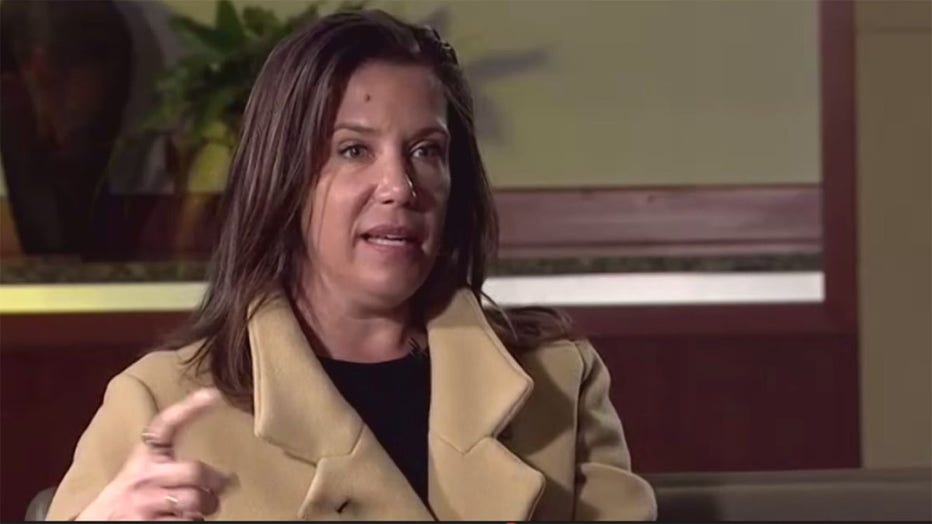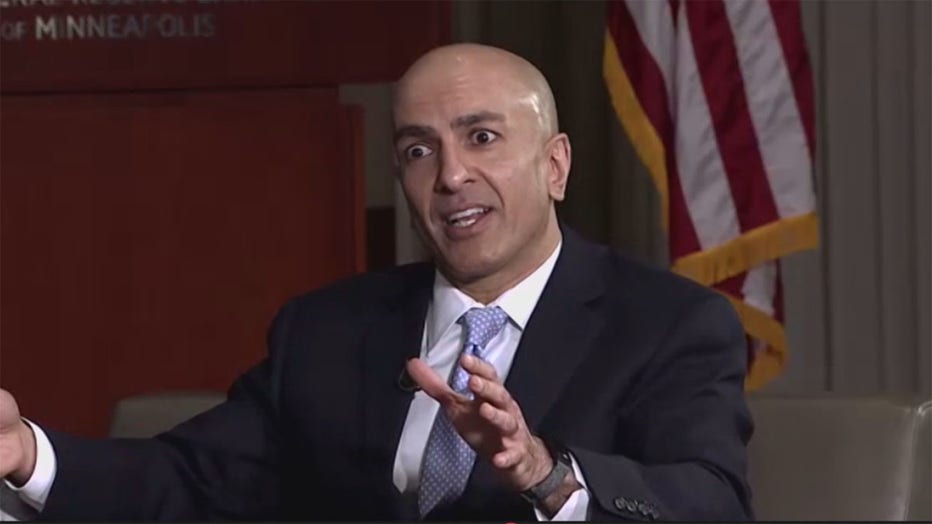Best Buy CEO sees high worker turnover in US economy lasting 12-24 months

Best Buy CEO sees high worker turnover in U.S. economy lasting 12-24 months
The heads of the Minneapolis Federal Reserve and Best Buy say uncertainty caused by the COVID-19 pandemic will cloud the economy in the near term, with supply chain disruptions and a worker shortage likely to continue.
MINNEAPOLIS (FOX 9) - The heads of the Minneapolis Federal Reserve and Best Buy say uncertainty caused by the COVID-19 pandemic will cloud the economy in the near term, with supply chain disruptions and a worker shortage likely to continue.
Best Buy Chief Executive Officer Corie Barry said she expected high labor market churn to remain for another 12-24 months because of concerns over health, inconsistency of child care, worker burnout, different lifestyle expectations and a lot of open jobs.
"I think we’re going to see this labor market churn unfortunately for quite some time because I don’t see any of those five factors evening out in the nearest term," Barry told Minneapolis Fed President Neel Kashkari during a forum sponsored by the bank.
A record number of Americans quit their jobs this fall and found new ones. Small business owners in the Twin Cities have told FOX 9 they'd add workers -- if only the could find them.
In Minnesota, the unemployment rate has fallen to 3.3 percent, matching the mark before the pandemic started in early 2020. Wages are up nearly 7 percent over the past year.

Best Buy Chief Executive Officer Corie Barry expects high labor market churn to remain for another 12-24 months.
"The toughest jobs are losing workers," Kashkari said. "They’re saying there are more attractive jobs out there."
Best Buy is getting fewer job applications than in the past, especially at the store level, Barry said. But the Richfield-based consumer electronics company mitigated that by raising its corporate minimum wage to $15 early in the pandemic and streamlining the job interview process with video interviews, she said.
Uncertainty is also weighing on the economy through supply chain disruptions and price increases, and the omicron variant's surge has inflicted new economic pain. U.S. inflation hit 7 percent in December, its highest level since 1982.
The consumer electronics sector was among the first to experience supply chain bottlenecks in 2020 because of a surge in demand from people stuck at home with disposable income. With the virus surge shutting down manufacturing and shipping in different parts of the world, those bottlenecks will continue to frustrate many industries, Barry said.
"No matter where you’re at in terms of product, that’s going to have ripple effects for any company that’s consumer-facing," she said. "I don’t see this alleviating anytime soon, unfortunately."

Minneapolis Fed President Neel Kashkari
Kashkari said he has been surprised in recent months by high and persistant inflation. The Federal Reserve is considering interest rate hikes this year to reign in inflation, but uncertainty over inflationary factors -- especially the supply chain issues -- will complicate the decision, Kashkari said.
"That has profound implications for us at the Federal Reserve," he said. "Because if we had great confidence that these factors that were driving high inflation were in fact temporary, we could say, we’ll just let it run its course and naturally revert. But if some of these things look like they’ll be sustained, then there’s the risk that it becomes a self-fulfilling prophecy."
Consumer spending hit records in 2021 but has slowed as stimulus approved by Congress ends and families use up cash saved during the early parts of the pandemic. Retail spending fell in December from a year earlier as inflation increased and customers moved up holiday purchases earlier in the fall because of expected supply chain issues.

